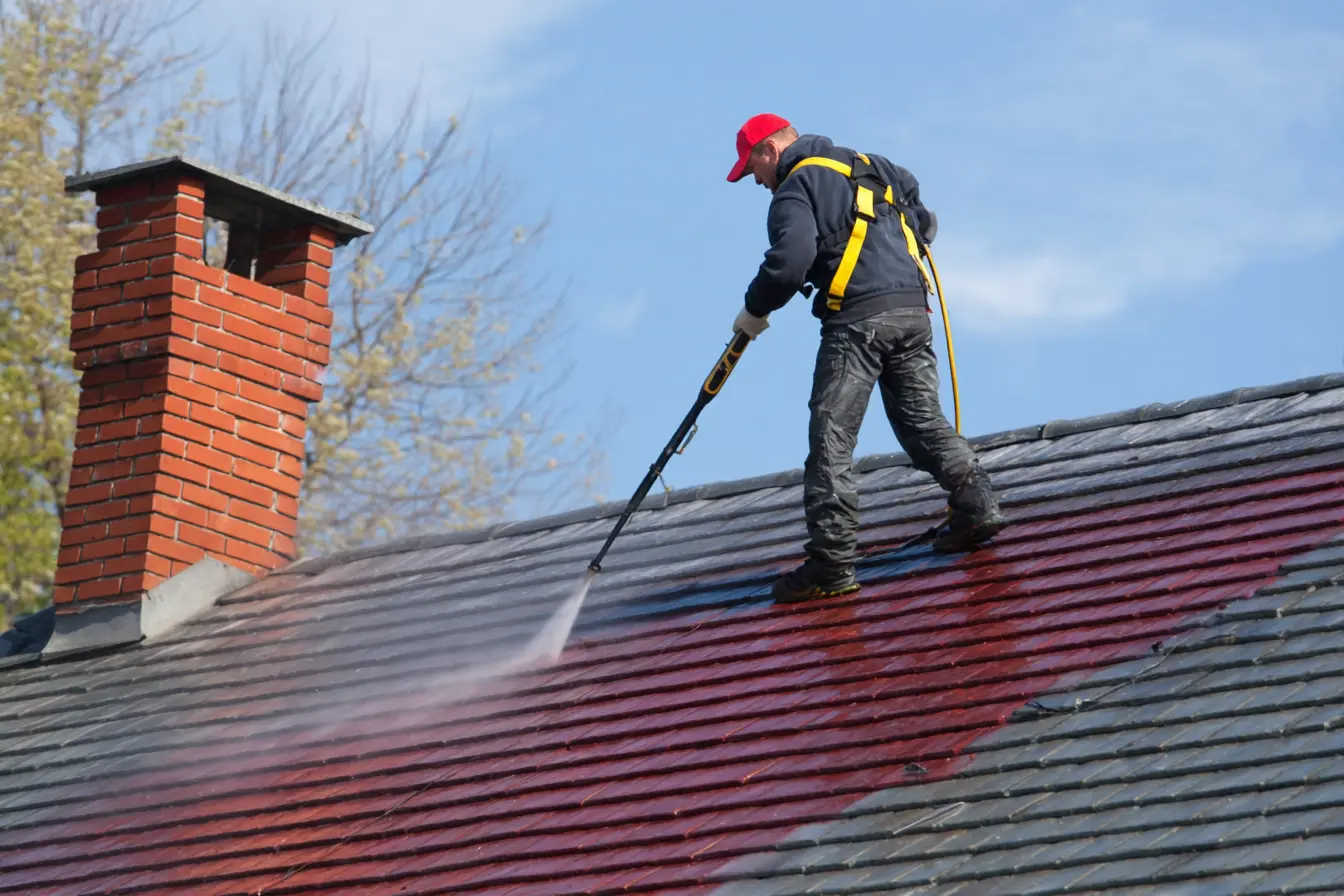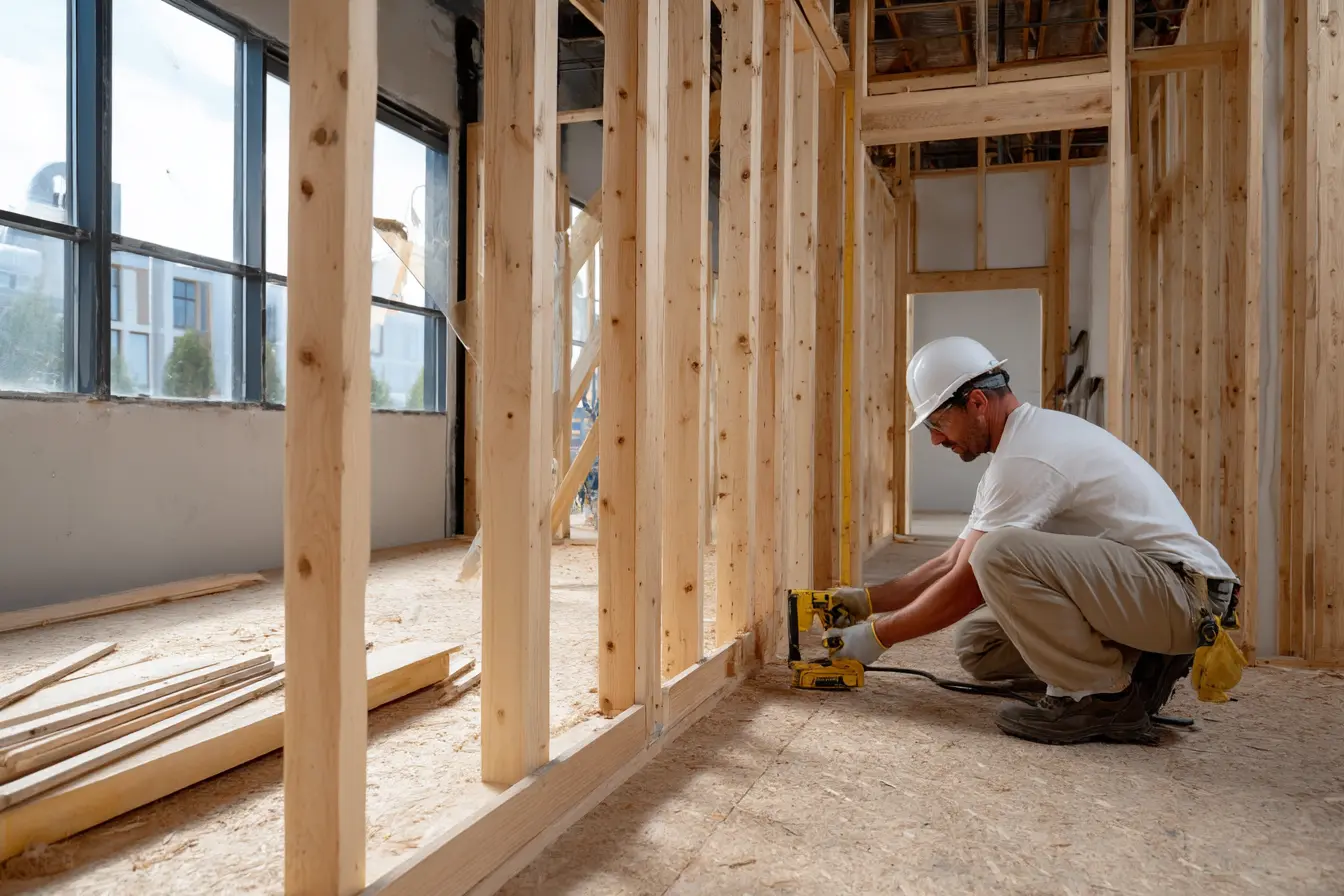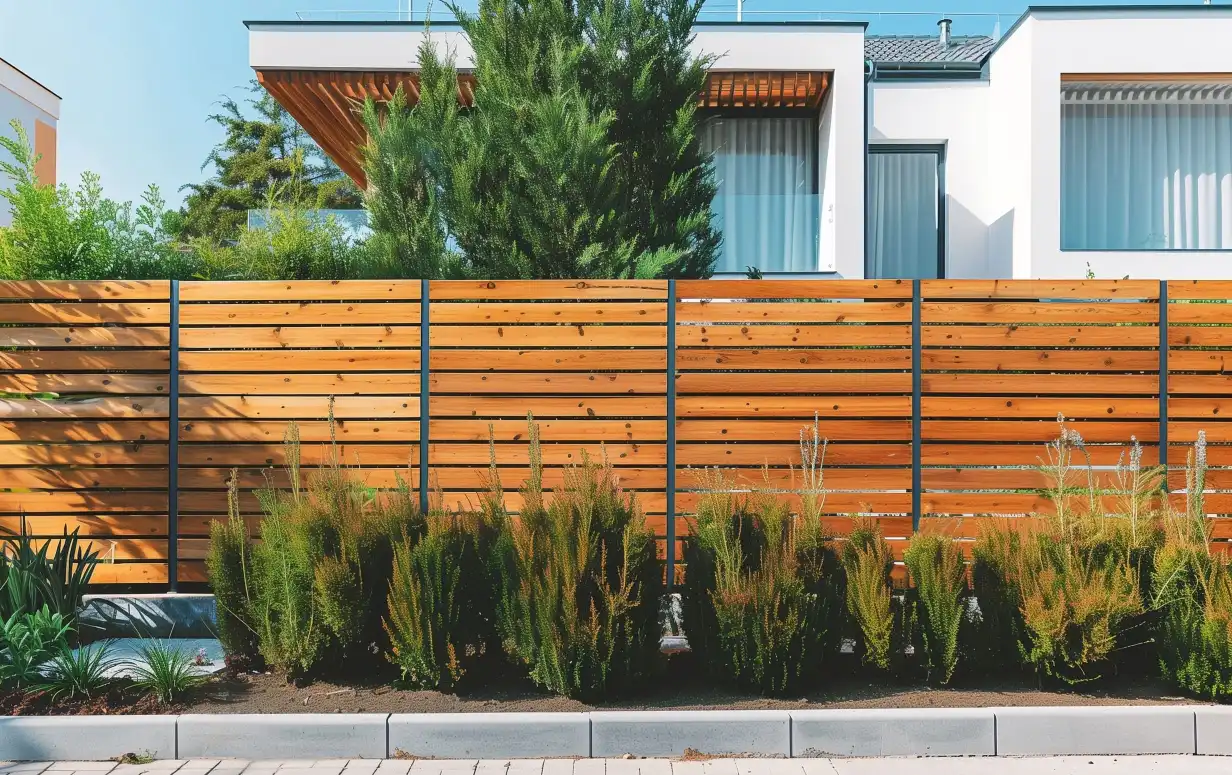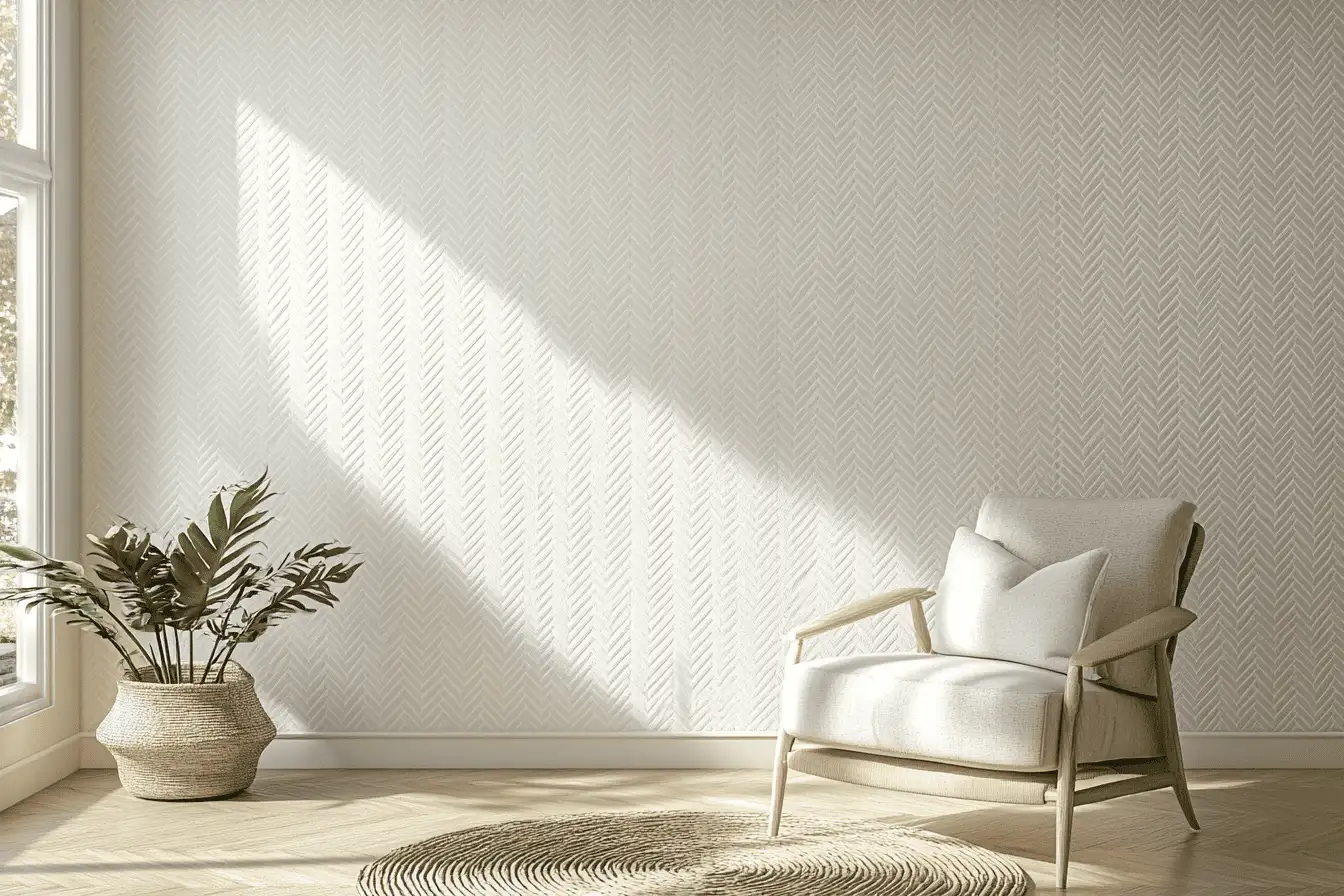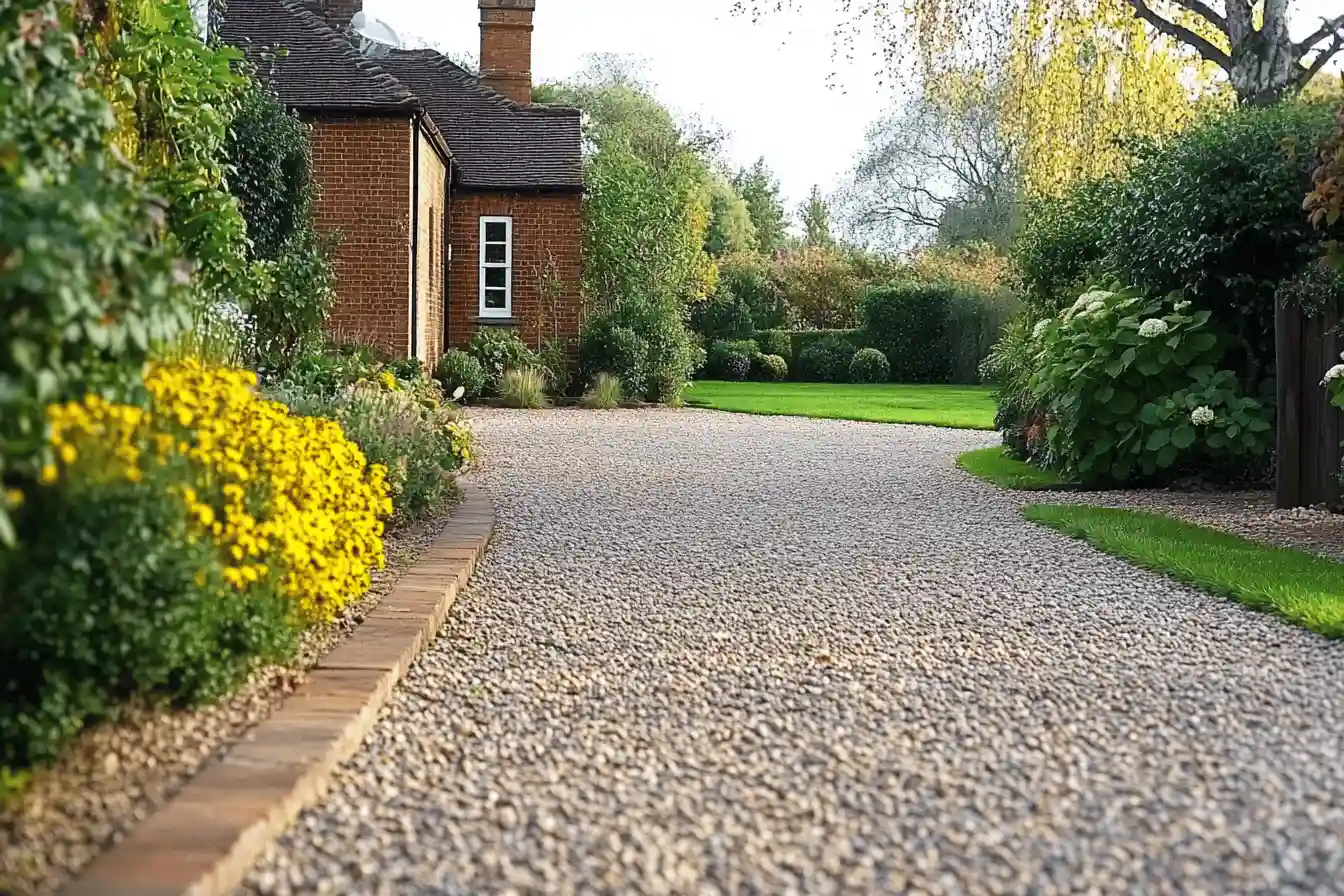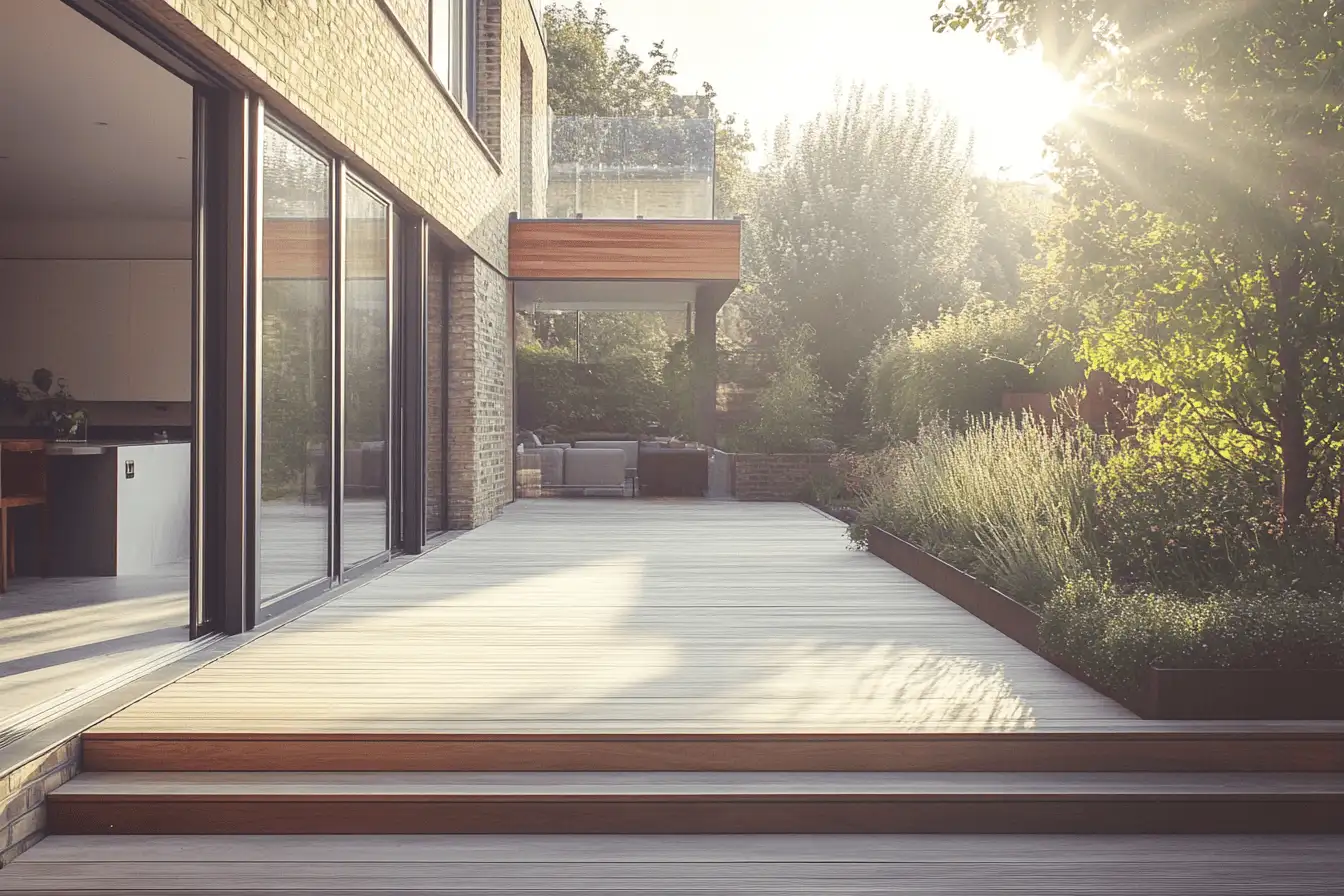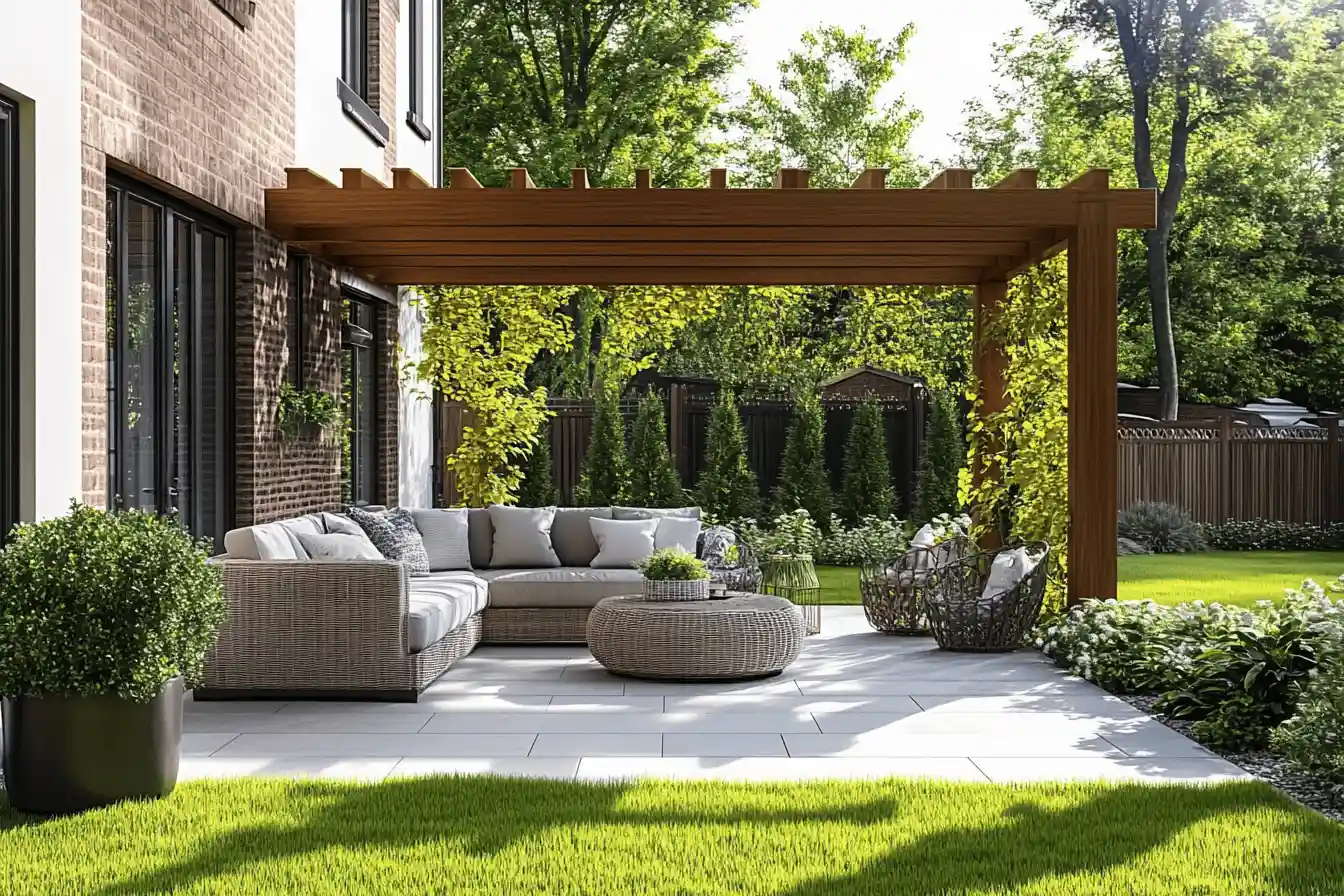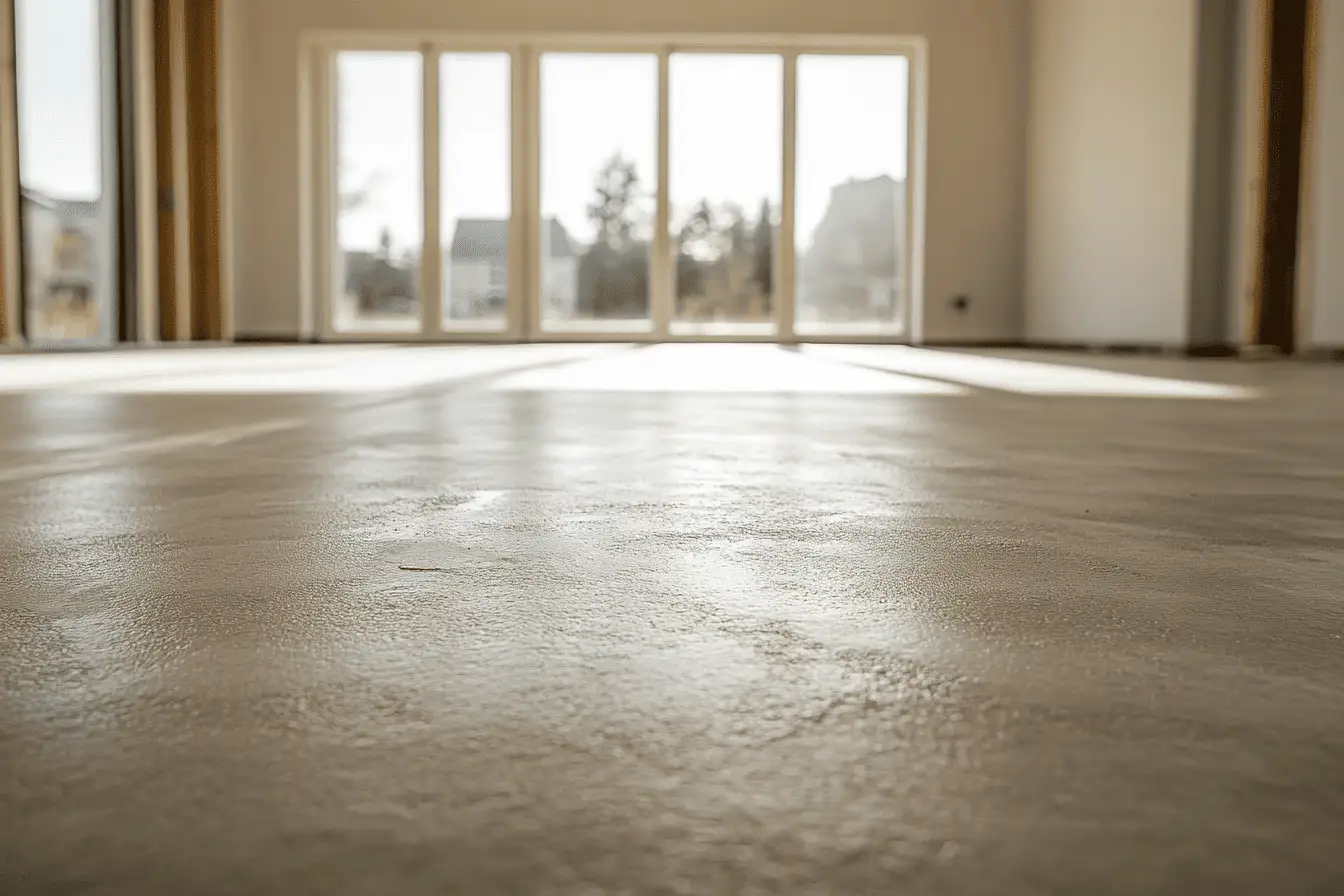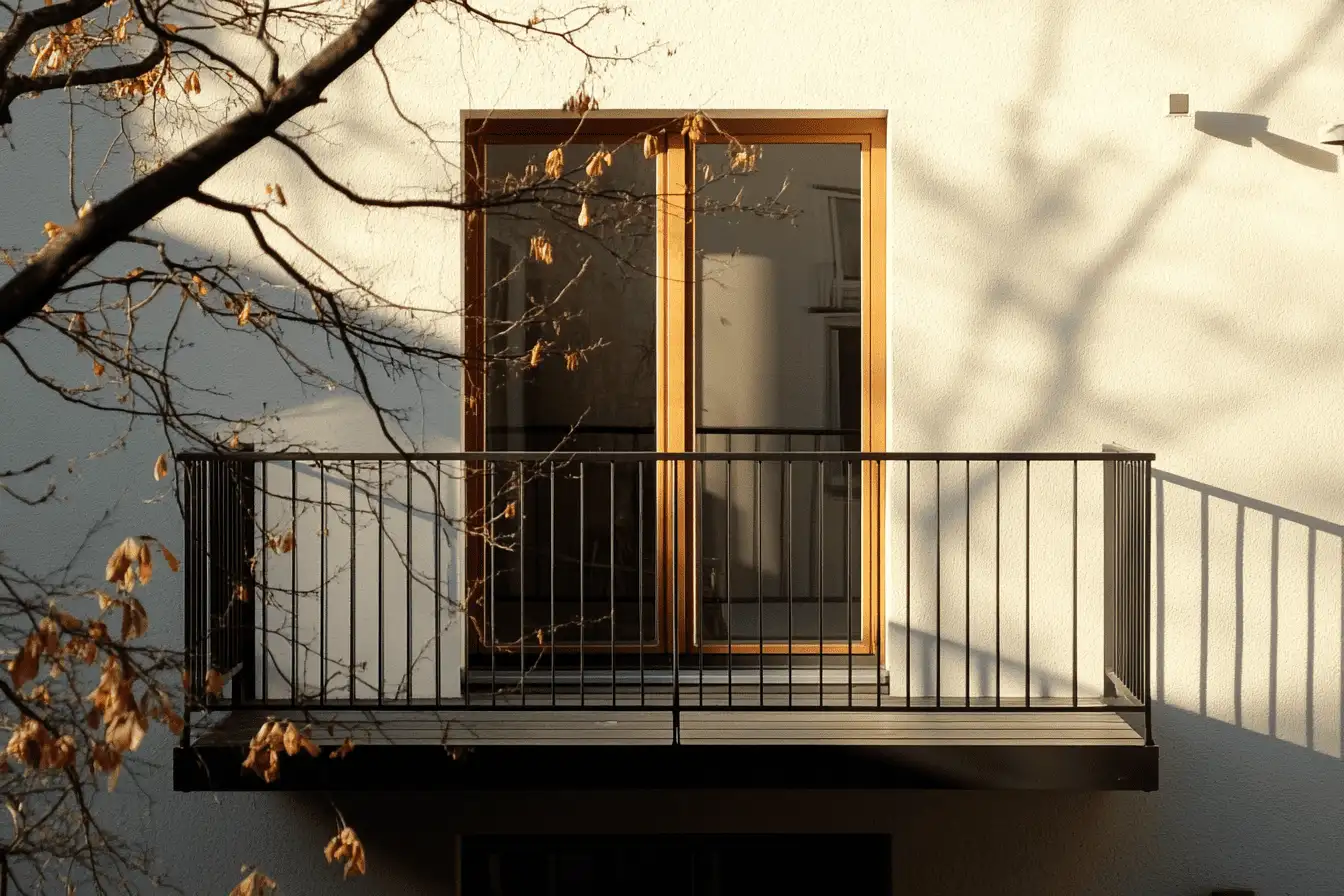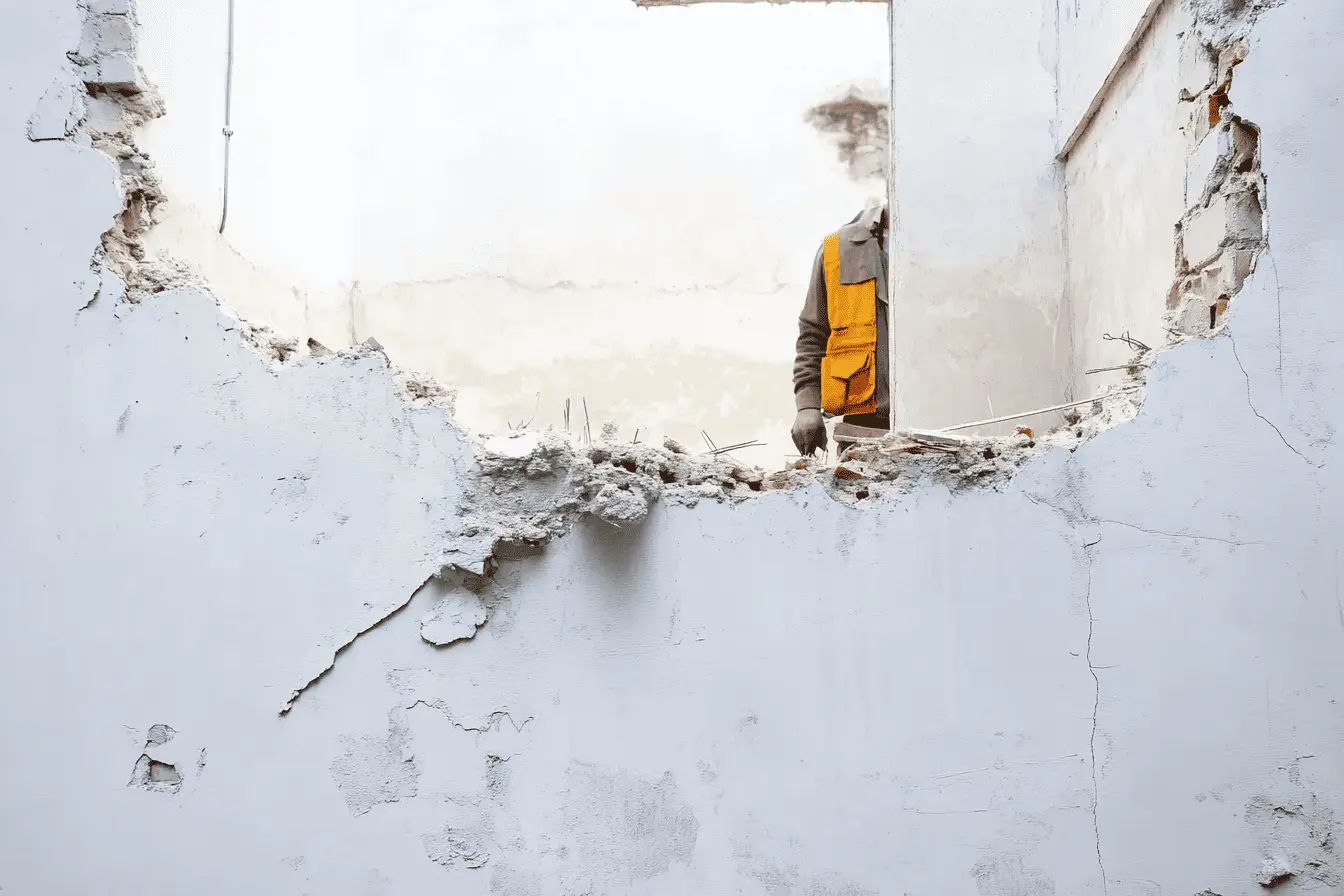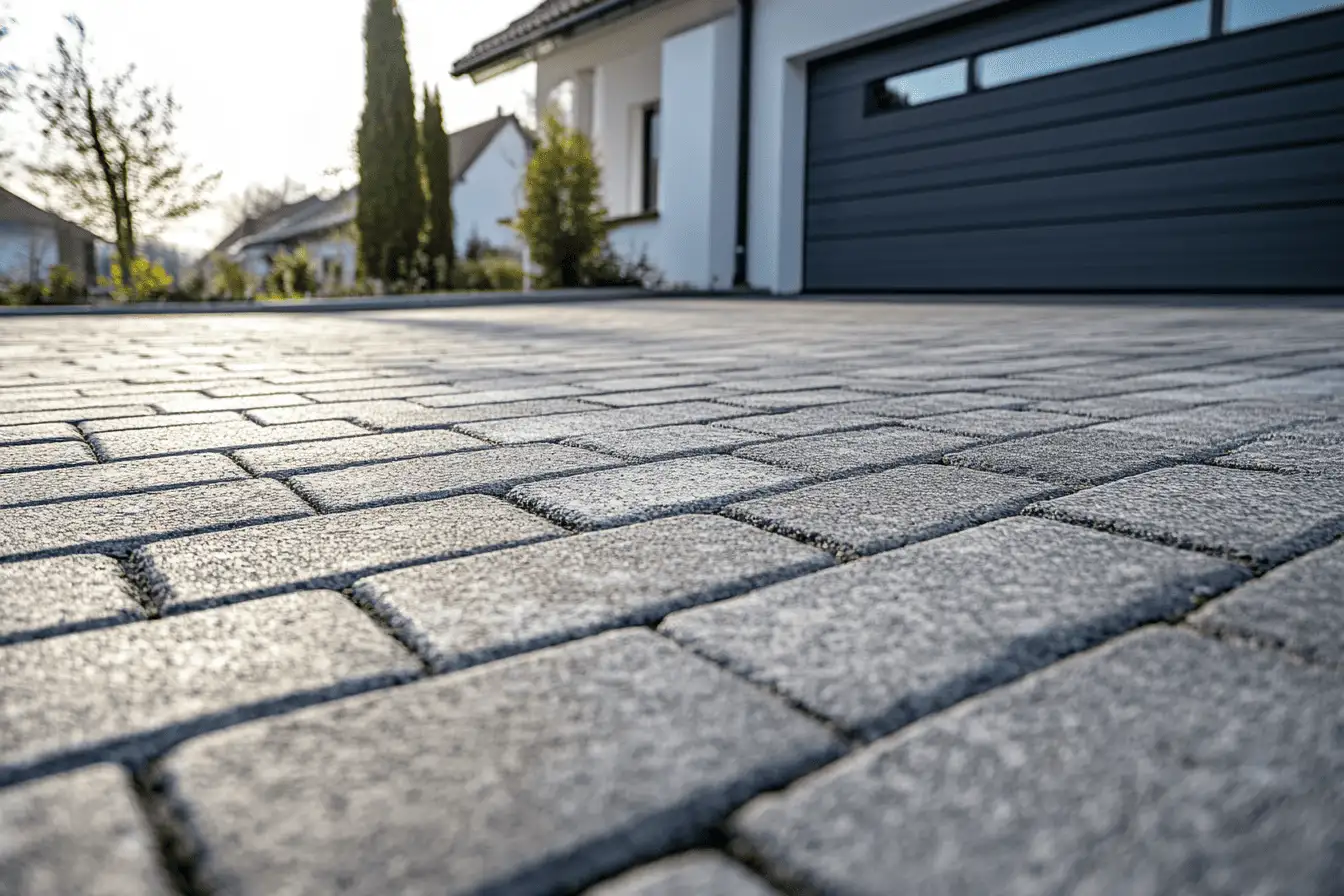
Block paving helps to beautify your front garden or driveway. You have a great deal of creative possibilities: from the material to the pattern, you can create your own individual design. But how much does block paving cost per square metre in the UK? Plus: The best savings tips and where to get free quotes.
How much does block paving cost in the UK?
The average block paving price per m² will be around £70 – £120 n the UK. Prices vary depending on the region and the craftsmen’s qualification, as well as the materials used. Concrete blocks are cheaper than clay blocks or especially natural stones.
AVERAGE COST: £70 – £120 PER SQM
The chosen material also has an impact on labour costs. Laying special block paving patterns or smaller stones is more time consuming. The following is a cost example of a permeable driveway block paving with concrete blocks. The driveway is located in a suburb of Manchester.
Example: Driveway block paving cost – 50 m²
1 m² | 50 m² | |
|---|---|---|
Concrete blocks | £10 | £500 |
Lay edging stones | £5 per metre | £200 |
Sub-base (MOT type 1 stone, sharp sand) | £23 | £1,150 |
Excavation and waste disposal | £10 | £500 |
Labour cost | £33 | £1,650 |
Total cost | £4,000 |
Money saving tip: Compare block paving prices in your area!
There are now platforms that help you compare prices of contractors and find the best value for money in your area quickly and easily. A recommendable service is that of Bark. It only takes a few clicks to fill out the form. Whether you accept one of the offers or leave it at the price overview is up to you. The service is non-binding and free of charge.
Cost of block paving: What is the breakdown?
The cost of block paving (also known as brick paving) consists of the material costs for the bricks / blocks or natural stones and the sub-base as well as the related labour costs. Depending on whether you want a front garden / terrace, a driveway or a garden path paving, different materials are suitable, which are associated with different costs.
1. Type of pavers
» £10 – £90 per sqm An inexpensive type are concrete blocks at around £10 per sqm. Clay blocks are around £20 – £25 per sqm and natural stone is much more expensive, starting at around £30 per sqm. A detailed overview of the individual materials and their costs can be found further down in this article.
2. Sub-base
» £15– £30 per sqm You also have to calculate material costs for the subgrade and sub-base. The sub-base and base costs, depending on the thickness required (approx. 100 – 300mm) and the materials chosen, e.g. MOT type 1 in combination with sand or concrete will be around £15 – £30 per sqm.
3. Labour cost for excavation, waste removal and block paving
» £40 – £60 per sqm The labour cost per m2 block paving, depending on brick type and pattern style, is around £30 – £50 and for the necessary preliminary work such as excavation and waste removal around £10 per sqm. Additional costs can be expected e.g. for laying edging stones (about £5 per metre). The major part of the cost for block paving is the labour cost. So it is important to find a specialist company that is good but inexpensive. All costs on this page serve as guideline values including VAT and may of course vary.
Do I need permission for block paving? No permission is required when using permeable material or a sustainable drainage system (SuDS). If impermeable blocks are used, the water must be able to run into a suitable drainage area such as a border or lawn. Otherwise you will need a planning permission if more than 5 sqm block paving is used.
Block paving: Overview of costs for the material
In the following section you will find an overview of the individual types of pavers including their costs and a cost overview of the sub-base. If you would like to know how you can reduce labour costs, scroll down. With the type of pavers, the choice is extremely varied, from natural stone to simple concrete blocks. Depending on which material and paving pattern you choose, the costs for the sub-base as well as the labour costs increase or decrease.Also consider possible extra costs for the edging stones, a drainage system or a weed mat.
Which pavers are the right ones for my project?
To do this you must first decide on a type of pavers. Different types of pavers are suitable for your terrace / patio, driveway or garden path. You should also take into account if something else has already been paved in the garden – after all, it should harmonize. Attention should also be paid to the load. Depending on the load, paving blocks of different thicknesses should be chosen. The costs usually increase with depth. Here are some examples:
» Terraces and garden paths: about 60mm depth » Driveways: about 60 – 80mm depth » When there’s heavy traffic: about 80 – 120mm depth
UK’s 3 most popular block paving types and their cost
1. Concrete blocks
The most favourable option are concrete blocks. The concrete blocks are very easy to lay and save on labour costs. Concrete blocks can be laid by do-it-yourself enthusiasts themselves, as the blocks are made to measure. Another advantage of concrete blocks is that they are also very slip-resistant in winter and soiling can be easily removed.In addition, concrete blocks are available in a wide range of patterns and colours. A disadvantage, however, is that the colour may become faded over the years and they are not as hardwearing as clay or natural stone, for example.
It is also important to note that edging stones should also be laid with the concrete block, otherwise the blocks can slip off at the sides. This of course increases the total costs for block paving.
To sum up: Concrete blocks are easy to maintain, individually designable and very inexpensive.
Cost: £10 – £90 per sqm
2. Clay blocks
Clay block pavers are very popular in the UK. They have the advantage over concrete that their colour does not fade and they are more hardwearing. They also have a natural anti slip and require little maintenance. However, they are more difficult to cut than concrete blocks and not as suitable for patterning, because their block depth is limited. But most importantly, they are much more expensive than concrete blocks. The clay block costs per m2 are at an average £20-£25.
To sum up: Clay blocks are very popular for a reason. They are more hardwearing than concrete and their color doesn’t fade. But you also have to invest more money for this.
Cost: from £20 per sqm
3. Natural stone
Natural stone, unlike concrete blocks, is not a cast stone. This means that they are not so easy to lay. The work should usually be done by a professional craftsman. The advantages of natural stone are its sustainability and high quality. Once the stones are laid, they last forever and blend in well with the ground. Furthermore, no edging stones need to be used. Natural stones can become very slippery when they are covered with moss. To prevent slipping in wet conditions it helps to lay smaller stones. Popular alternatives besides cobblestones are for example terrace tiles / slabs on a sub-base made of MOT type 1
material and sharp sand.
To sum up: Natural stone has a noble look, lasts forever, but is comparatively expensive and involves more work.
Cost: from £30 per sqm
Block paving sub-base: Prices and materials
Besides the costs for the block pavers, there are also costs for the sub-base. Depending on the chosen material and the required depth, the sub-base costs vary. The sub-base consists of a thicker base layer e.g. made of MOT type 1 material and a thinner bedding layer e.g. made of sharp sand. The total thickness is, depending on the load and type of pavers, about 100 – 300mm. Additionally a weed mat / membrane is usually placed between sub-base and bedding layer. A specialist will know exactly which sub-base is the right one for which type of pavers.
The costs of the sub-base also vary:
» a simple sub-base of MOT type 1 material and a bedding layer of grit or sharp sand starts at around £15 per sqm. » a sub-base of crushed stone is slightly more expensive, here the costs are around £20 – £30 per sqm. » if a concrete base is required, the cost increases to around £25 – £35 per sqm.
What are the likely block paving labour costs?
» The simpler the pattern, the cheaper the laying.
The labour costs for block paving are around £30 – £50 per sqm, depending on the material and laying pattern. For the necessary preparatory work such as excavation and waste disposal, the cost can be calculated at around £10 per sqm. If concrete blocks are used, an additional £5 per metre can be charged for laying edging stones. A simple, straight laying is much faster than more complex patterns and therefore also results in lower labour costs. Relatively simple and popular in the UK are 45° and 90° herringbone patterns. Also common is the stretcher pattern and basketweave pattern. Elaborate laying patterns or the use of several different types of stone naturally increase the work involved considerably and also lead to a significant increase in labour costs.
Prices for block paving can vary by region, season and qualification
Region
The region can also influence the average block paving prices per sqm. In rural areas or small towns you can usually find cheaper offers than in big cities like London, Birmingham, Manchester or Liverpool. Also, prices in northern and north- eastern UK are usually lower than in southern and south-western parts. The table gives you an overview of the average driveway block paving prices per square metre, sorted by location in the UK. The price includes all material and labour costs. In this case, permeable concrete blocks are used for a driveway. All prices listed on this page serve as guideline values incl. VAT and may of course vary.
Season
There may also be seasonal price fluctuations since the demand for block paving is much higher in summer. Craftsmen are usually busier and sometimes booked out for months. In which case the prices will also be higher in the warmer season.
Qualification
In addition, the qualification and reputation of the craftsman can have an influence on the costs. It is definitely worth comparing customer ratings as well as prices before hiring the professionals.
Average block paving cost per 1 m²
UK Average | £74 |
|---|---|
UK City Average | £76 |
UK Rural Average | £68 |
London | £84 |
Edinburgh | £82 |
Manchester | £80 |
Bristol | £80 |
Leeds | £78 |
Glasgow | £76 |
Nottingham | £76 |
Leicester | £76 |
Birmingham | £76 |
Southampton | £76 |
Sheffield | £76 |
Liverpool | £74 |
Cardiff | £72 |
Newcastle | £72 |
Belfast | £70 |
Which paver pattern should I choose?
For some types of pavers like concrete blocks or clay blocks you have to choose a paver pattern. Some patterns like herringbone are ideal for driveways, others less so. For some inspiration and an overview you can take a look at different block paving patterns in this video:
Play Video
How long does it take to pave a driveway?
» On average 3-5 days for 50 sqm
How long it takes to lay block paving depends on several factors. It depends on how many people are working on it, which type of paver and which pattern is chosen and of course how many square meters are involved.A simple, ordinary 50 sqm driveway with a simple herringbone pattern and concrete or clay blocks without curves will take about 3-5 days on average.
What are the benefits of block paving?
» Appearance, long-life and sustainable
On the one hand, block paving is very attractive, can be designed in many different ways and usually has a very high quality look to it.
Loose coverings like crashed stone or gravel are a bit cheaper, but have their own disadvantages. It is almost impossible to remove snow or loose leaves from them. Asphalt does not have this disadvantage, but it is also much less attractive and – except for large areas – usually much more expensive than paving. Another advantage of block paving is that permeable material or a sustainable drainage system can be used to
allow water to flow away. Its natural absorbing ability makes it environmentally sustainable. Especially when clay blocks or natural stone are used, block paving is also very durable, long living and requires little maintenance.
Tips for your block paving project – must be considered!
So that you do not get annoyed afterwards and avoid unnecessary costs and work, consider the following points:
» Carport or outdoor barbecue planned? Before you start block pavement, consider whether you want to build a carport, for example. The foundation can then be embedded before paving and can save additional costs. The same applies to your new terrace: If you want to build a wall or an outdoor barbecue, plan it beforehand! » Would you like to walk barefoot on the pavers in summer? When choosing the material, consider carefully whether you will be going barefoot on the pavers. Dark pavers, can get
very hot in summer due to the sun – not a good choice for garden paths or terraces!
4 Savings tips to save on your block paving costs
1. Removing plants and scrub You can do some work yourself to reduce the labour cost. If the area of your driveway or patio is covered with heavy vegetation, you can do the work yourself and remove all plants and scrub. This will reduce the cost for a craftsman, as clearing the area can take a lot of time.
2. Do the excavation yourself If you want to reduce costs, you can also do the excavation yourself. However, you may have to rent a mini-excavator if it is a lot of work. A mini-excavator costs around £70 – £110 per day. If you leave the excavation to professionals, this can increase the total cost considerably, but then again can save money in the long run by using high quality construction. If the subgrade is not well prepared, the block paving may have to be repeated in the near future.
A lot of money can be saved with a little preparatory work
3. Look for remaining paver stocks If the block paving costs are to be kept low and the design plays a less important role, it is a good idea
to keep an eye out for leftover block pavers. Especially at the end of the season some construction
markets or specialist retailers have good offers from time to time.
4. Get free fixed price quotes and compare prices in your region Since not all craftsmen work equally fast, it is always an advantage to have your garden or driveway paved at a fixed price rather than on an hourly or daily basis. This avoids unpleasant cost surprises and simply makes sense. Even in the same city the brick paving prices can vary significantly from craftsman to craftsman. To save time and effort and to find the best price-performance ratio, it is worthwhile making a price comparison. You can use the free price comparison on this page.

